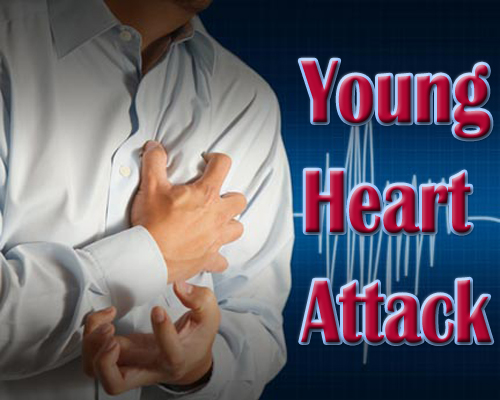- Home
- Medical news & Guidelines
- Anesthesiology
- Cardiology and CTVS
- Critical Care
- Dentistry
- Dermatology
- Diabetes and Endocrinology
- ENT
- Gastroenterology
- Medicine
- Nephrology
- Neurology
- Obstretics-Gynaecology
- Oncology
- Ophthalmology
- Orthopaedics
- Pediatrics-Neonatology
- Psychiatry
- Pulmonology
- Radiology
- Surgery
- Urology
- Laboratory Medicine
- Diet
- Nursing
- Paramedical
- Physiotherapy
- Health news
- Fact Check
- Bone Health Fact Check
- Brain Health Fact Check
- Cancer Related Fact Check
- Child Care Fact Check
- Dental and oral health fact check
- Diabetes and metabolic health fact check
- Diet and Nutrition Fact Check
- Eye and ENT Care Fact Check
- Fitness fact check
- Gut health fact check
- Heart health fact check
- Kidney health fact check
- Medical education fact check
- Men's health fact check
- Respiratory fact check
- Skin and hair care fact check
- Vaccine and Immunization fact check
- Women's health fact check
- AYUSH
- State News
- Andaman and Nicobar Islands
- Andhra Pradesh
- Arunachal Pradesh
- Assam
- Bihar
- Chandigarh
- Chattisgarh
- Dadra and Nagar Haveli
- Daman and Diu
- Delhi
- Goa
- Gujarat
- Haryana
- Himachal Pradesh
- Jammu & Kashmir
- Jharkhand
- Karnataka
- Kerala
- Ladakh
- Lakshadweep
- Madhya Pradesh
- Maharashtra
- Manipur
- Meghalaya
- Mizoram
- Nagaland
- Odisha
- Puducherry
- Punjab
- Rajasthan
- Sikkim
- Tamil Nadu
- Telangana
- Tripura
- Uttar Pradesh
- Uttrakhand
- West Bengal
- Medical Education
- Industry
Majority of young heart attack patients unaware of cardiac risks

Washington D.C., Oct. 27 : A new study has revealed that many young heart attack patients, especially women, are unaware of the impending cardiac risks.
Examining 3,501 heart attack survivors, the researchers found that only 53 percent had considered themselves at risk. Even fewer, 46 percent, of the patients reported being told they were at risk by a healthcare provider, and only 49 percent reported discussing heart disease and risk modification with a doctor.
Women were 11 percent less likely than men to be told by their doctors that they were at risk for a heart attack and were 16 percent less likely to report having a healthcare provider discuss heart disease and ways that they could reduce their risk.
Lead author Erica Leifheit-Limson of the Yale School of Public Health said that many younger women and men, even those with multiple cardiac risk factors, were not receiving adequate counseling on heart disease.
Leifheit-Limson and colleagues used data from the VIRGO (Variation in Recovery: Role of Gender on Outcomes of Young AMI Patients) study to analyze medical records and the results of interviews with heart attack patients from more than 100 hospitals in the United States and Spain. Study participants ranged in age from 18 to 55.
In the study, Leifheit-Limson and colleagues compared the prevalence of five cardiac risk factors (diabetes, high cholesterol, hypertension, obesity, and smoking status) as well as reports of clinical counseling on heart disease.
They found that 97 percent of the women and 99 percent of the men had at least one risk factor, and nearly two-thirds had three or more. The most common risk factor was high cholesterol.
Senior author Judith Lichtman said that they need to empower individuals to seek information about heart health, and ensure that care providers were educating patients about risk factor management.
The study appears in the Journal of the American College of Cardiology.
Examining 3,501 heart attack survivors, the researchers found that only 53 percent had considered themselves at risk. Even fewer, 46 percent, of the patients reported being told they were at risk by a healthcare provider, and only 49 percent reported discussing heart disease and risk modification with a doctor.
Women were 11 percent less likely than men to be told by their doctors that they were at risk for a heart attack and were 16 percent less likely to report having a healthcare provider discuss heart disease and ways that they could reduce their risk.
Lead author Erica Leifheit-Limson of the Yale School of Public Health said that many younger women and men, even those with multiple cardiac risk factors, were not receiving adequate counseling on heart disease.
Leifheit-Limson and colleagues used data from the VIRGO (Variation in Recovery: Role of Gender on Outcomes of Young AMI Patients) study to analyze medical records and the results of interviews with heart attack patients from more than 100 hospitals in the United States and Spain. Study participants ranged in age from 18 to 55.
In the study, Leifheit-Limson and colleagues compared the prevalence of five cardiac risk factors (diabetes, high cholesterol, hypertension, obesity, and smoking status) as well as reports of clinical counseling on heart disease.
They found that 97 percent of the women and 99 percent of the men had at least one risk factor, and nearly two-thirds had three or more. The most common risk factor was high cholesterol.
Senior author Judith Lichtman said that they need to empower individuals to seek information about heart health, and ensure that care providers were educating patients about risk factor management.
The study appears in the Journal of the American College of Cardiology.
Meghna A Singhania is the founder and Editor-in-Chief at Medical Dialogues. An Economics graduate from Delhi University and a post graduate from London School of Economics and Political Science, her key research interest lies in health economics, and policy making in health and medical sector in the country. She is a member of the Association of Healthcare Journalists. She can be contacted at meghna@medicaldialogues.in. Contact no. 011-43720751
Next Story


